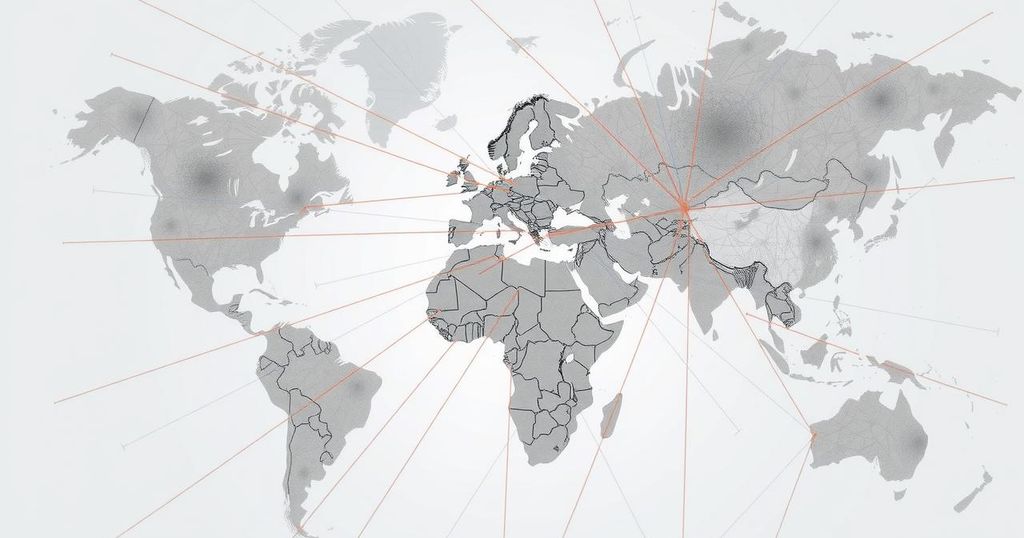Putin’s World Shrinks: As Ukraine Becomes Russia’s Afghanistan, Allies Walk Away

- The war in Ukraine is damaging Russia’s diplomatic relationships.
- Syria, once a strong ally, is crumbling under a lack of support from Moscow.
- Armenia’s withdrawal from CSTO underscores loss of trust in Russia.
- Finland and Sweden joined NATO out of fear of Russian aggression.
- Central Asian countries are turning to Europe and China, capitalizing on Russia’s distractions.
Escalating Conflict Creates Fractured Alliances
The ongoing conflict in Ukraine has now continued into its third year and the toll it is taking goes beyond the battlefield. It is fostering deepening rifts between Russia and its once-steadfast allies, shaking foundations of trust that were built over many years. What was once a tapestry of international friendships is now unraveling, with nations slowly distancing themselves from Moscow as its military efforts become a stark reminder of isolation and failure.
Syria and Armenia: Once Allies, Now Vulnerable
For Vladimir Putin, this war is not just about lost soldiers, but also about a significant diplomatic defeat. Parallels have been drawn between Russia’s current situation and America’s fall in Afghanistan after a protracted military engagement. The loss of Syria, once viewed as a prized ally, illustrates this perfectly: the Kremlin had transformed the tide of the Syrian civil war in 2015, yet by 2024, with its focus diverted toward the conflict in Ukraine, it was unable to offer Assad the support needed to maintain his grip on power. As rebel forces gained momentum, the alliance began to crumble before Putin’s eyes, revealing cracks in Russia’s influence.
NATO Expansion Fuels Russian Isolation
Further exemplifying the shifting geopolitical landscape is Armenia, which relied heavily on Russia for protection against Azerbaijan and Turkey. In 2023, however, that protective umbrella disappeared, and the fall of Nagorno-Karabakh to Azerbaijani forces drove many ethnic Armenians to flee their homes. Disillusionment towards Moscow swelled in Yerevan, leading to a withdrawal from the CSTO—an alliance supposed to safeguard Armenia. Meanwhile, in a surprising twist, Finland and Sweden have both joined NATO, moving swiftly to safeguard their borders against Russian aggression, shattering years of historical neutrality in response to the war in Ukraine.
Central Asia Shifts Towards Western Partnerships
The ripple effects of Russia’s declining influence stretch far beyond Eastern Europe. In Central Asia, countries like Kazakhstan and Uzbekistan, known for their historical ties to the USSR, are quietly pivoting away from Moscow. Instead, trade routes and promises from Europe, Turkey, and China are dominating the landscape. China’s ambitious Belt and Road Initiative is laying down infrastructures that cement its presence across these regions, while NATO is making clear inroads into previously untouched territories. Russia now finds itself struggling to keep up with these developments.
Iran’s Disillusionment with Russian Support
Iran once seemed unwavering in its support for Russia, providing critical military supplies like drones to aid Moscow’s efforts in Ukraine. Yet, when Iran found itself under attack from Israel and subsequently faced U.S. airstrikes, Russia’s lack of support was telling. The Kremlin’s verbal reassurances were insufficient; Iran began to question the sincerity of their partnership. This one-sided relationship is further isolating Russia, as its inability to reciprocate loyalty becomes painfully evident.
In summary, Russia’s isolation in the international arena is intensifying as notable allies like Syria and Armenia distance themselves, and nations like Finland and Sweden embrace NATO membership. The losses are not just military victories or territorial claims; they represent a larger decline in trusted diplomatic relationships. As countries across Eurasia shift allegiances, it becomes clear that Russia is not just engaged in warfare—it is also facing a quiet yet significant geopolitical collapse, one that echoes across borders and spheres of influence.






